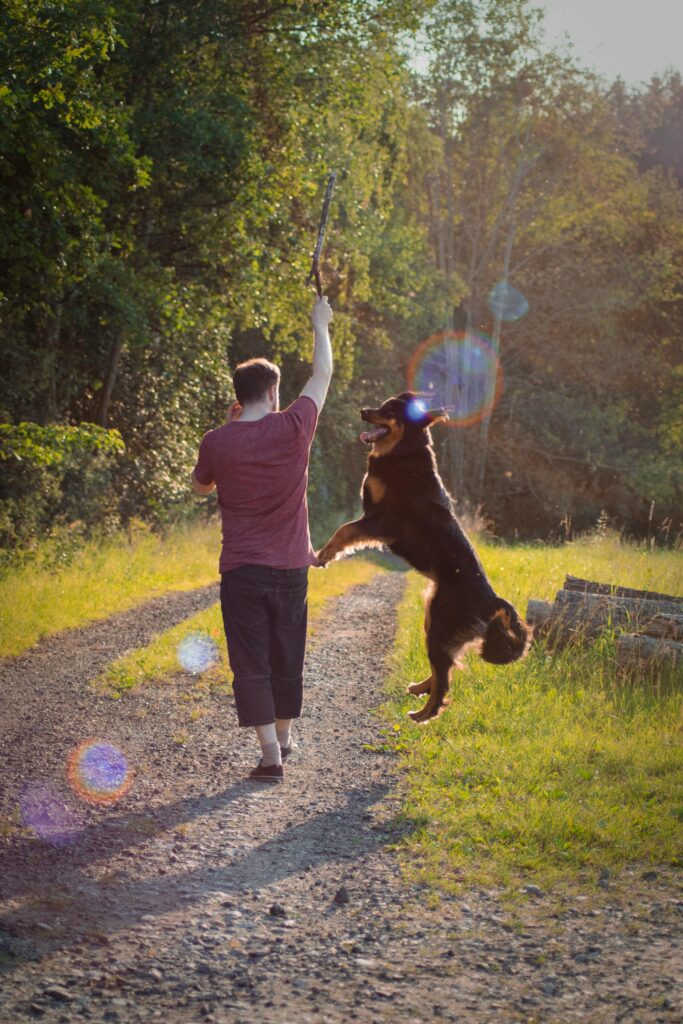The Ongoing Debate Among Dog Owners
If you’ve ever stood at the gate of a dog park wondering whether to go in, you’re not alone. Dog parks are a popular way for owners to give their dogs exercise and social time, but they’re not always the best choice for every dog or every training goal.
Structured play, on the other hand, offers a more controlled environment where you can focus on obedience, manners, and positive interactions.
As a professional dog trainer, I’ve seen the benefits and drawbacks of both. The best choice depends on your dog’s personality, your training goals, and the type of environment you want to reinforce.

The Pros and Cons of Dog Parks
Dog parks can provide:
- Plenty of physical exercise
- Opportunities to meet a variety of dogs
- An outlet for high-energy breeds
- A change of scenery
However, dog parks also have challenges:
- Unpredictable behavior from unfamiliar dogs
- Owners who may not intervene when problems arise
- Risk of over-arousal or aggressive encounters
- Difficulty reinforcing obedience in a chaotic environment
If your dog is still learning basic manners or struggles with impulse control, a busy dog park can make it harder to focus on training and easier for bad habits to develop.
What Is Structured Play?
Structured play is intentional, guided interaction between dogs, people, or both. It can happen in your yard, at a training facility, or during supervised group classes.
The difference between structured play and free-for-all dog park activity is control. You decide when play starts and stops, what games are played, and how your dog interacts with others.
Structured play sessions allow you to:
- Reinforce commands like “sit,” “stay,” and “come” during excitement
- Monitor body language and intervene before issues escalate
- Teach polite play, sharing toys, and respecting space
- Ensure all dogs involved are a good match for each other
Which Option Builds Better Obedience?
For training purposes, structured play almost always offers more benefits. It allows you to practice commands, reinforce calm greetings, and address problem behaviors in real time.
Dog parks may provide more variety and unpredictability, but those same factors can lead to setbacks if your dog isn’t ready. For example, a recall command that works at home might fail when your dog is chasing a new friend across a field.
Our Basic & Advanced Obedience Program is designed to help dogs succeed in both settings by building a foundation of commands that hold up in real-world environments.
Signs Your Dog Might Benefit From Structured Play First
Your dog might need more controlled practice before hitting the dog park if they:
- Jump on people or other dogs
- Ignore recall commands when distracted
- Play too rough or become possessive of toys
- Show nervousness or fear around unfamiliar dogs
Working on these behaviors in a structured environment helps your dog build the skills needed to navigate busier, less predictable places.
You can also review our post on why repetition is key in dog training for insight on how consistent practice solidifies obedience before adding distractions.
How to Get the Best of Both Worlds
If you enjoy dog parks but want to avoid setbacks, try this approach:
- Practice obedience in a low-distraction environment first.
- Add structured playdates with dogs you know and trust.
- Once your dog responds reliably, introduce short dog park visits.
- Use commands during the visit to reinforce focus and manners.
The American Kennel Club notes that training should happen in a variety of settings to ensure your dog can respond anywhere. By combining structured play with occasional dog park visits, you can create a balanced social life for your dog without sacrificing obedience.
Build Skills That Work Anywhere
At Off Leash K9 Training: Canton, we prepare dogs for success in every environment. Whether your goal is to enjoy off-leash freedom at the park or host calm playdates in your backyard, our programs teach the skills that make it possible.
Our Basic & Advanced Obedience Program focuses on building reliability, confidence, and control so your dog can handle both structured and unstructured settings.
Want your dog to be the best-behaved one at the park or during playdates? Contact us today to start training for real-world success.

